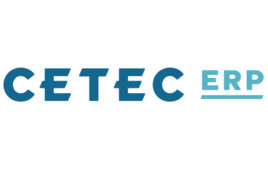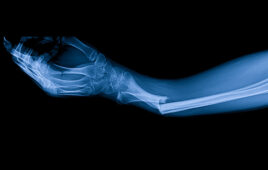The Boston-based conglomerate (NYSE: GE) is in the process of rolling out an implementation of the Field Agent to health providers as part of GE Healthcare’s Carestation Insights platform.
GE so far hasn’t needed FDA approval to do so because the Mini Field Agent devices are merely collecting non-patient-specific usage information from GE anesthesia machines and uploading the data to the cloud for analysis, said Kathleen Carroll-Mullen, Americas channel leader for automation & controls at GE Power. Experts at a health system’s business office, clinical team, or IT department can then run analytics off the data using the Carestation Insights platform.
The pairing of the Mini Field Agent and Carestation Insights with anesthesia machines has value because more efficient use of anesthesia gases can save health providers money. During a tryout of the system last year at Christchurch Hospital in New Zealand, anesthesiologists were able to use insights gleaned from the data to reduce low mean fresh gas flow rates by 13%, according to GE. They reduced the cost of using the gases per minute by 12%.
“One of the things that went into this use case, too, is that they looked at the use of anesthesia machines across the board. It varies widely from one machine to another and probably mostly because of how the doctors use it. So that was one. The second is that most anesthesia machines, according to GE Healthcare, are not connected to their network so they’re not able to get the data more readily available,” Carroll-Mullen said.
The connectivity in the future, though, could be used enhance workflow during day-to-day healthcare operations, according to Carroll-Mullen. The Mini Field Agent itself could also potentially be used with non-GE devices. There is also the potential to use the Mini Field Agent for two-way communications with medical devices in the future.
“We want to be able to not only connect anesthesia machines but all kinds of devices within the hospital settings to help optimize the use of any machine in different cases,” Carroll-Mullen said.
(Anders Wold, president and CEO of Clinical Care Solutions at GE Healthcare, will be the keynote speaker at DeviceTalks Boston on Oct. 2.)
The Mini Field Agent itself is about the size of a modem or Wi-Fi box a person might use at home. The Mini Field Agent can be mounted in, say, a data room within a clinical setting, Carroll-Mullen said. In the Carestation Insights implementation, it enables the transmission of hundreds of data points with every patient breath to the cloud via industry standard networking.
“One Mini Field Agent kit could be shipped out to a customer, and they could connect from one up to 10 anesthesia machines to get that data up to the healthcare cloud to better manage the use of gases and optimize the use of gases across several machines,” Carroll-Mullen said.
GE has also been keeping cybersecurity in mind with the Field Agent rollout, using the highest protections GE can incorporate into devices and ensuring that the Field Agent can be easily updated to patch security holes. Cybersecurity has increasingly mattered when it comes to connected medical devices. (St. Jude Medical, for example, saw its stock value drop last year amid controversial accusations that its cardiac devices were vulnerable. Abbott Labs, which acquired St. Jude for $25 billion, announced last month that it was upgrading the devices.)
“As we launch this, healthcare has their toll gates that they put us through to make sure that it meets the security that they’re expecting as well,” Carroll-Mullen said.






Really a good article for health care industries. Thanks for sharing.
Thanks, Haroon!